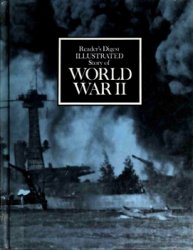No single scholarly work specifically covers France's role throughout the Cold War. A broad account of France's postwar foreign policy can be found in Frederic Bozo, La Politique etrangere de la France depuis 1947 (Paris: La Decouverte, 1997), and an overview on France's role during the first half of the Cold War is given in Georges-Henri Soutou, “France and the Cold War, 1944-1963,” Diplomacy & Statecraft, 12,4 (December 2001), 35-52. For a classic (and sympathetic) analysis of de Gaulle's concept and the Cold War system, see Stanley Hoffmann, Decline or Renewal? France since the 1930’s (New York: Viking, 1974). For the testimony of a veteran French diplomat whose career covered most of the Cold War (with limited sympathy for “Gaullism”), see Henri Froment-Meurice, Vu du Quai: Memoires, 1947-1983 (Paris: Fayard, 1998). For a useful introduction to de Gaulle, see Claire Andrieu, Philippe Braud, and Guillaume Piketty, Dictionnaire de Gaulle (Paris: Robert
Laffont, 2006); for a biographical approach, see Jean Lacouture, De Gaulle: The Ruler, 1945-1970 (New York: W. W. Norton, 1992), and Eric Roussel, Charles de Gaulle (Paris: Gallimard, 2002).
On France's policies and the origins of the Cold War under de Gaulle and his immediate successors, see John W. Young, France, the Cold War, and the Western Alliance, 1944-1949 (Leicester: Leicester University Press, 1990), Pierre Gerbet (ed.), Le Relevement, 1944-1949 (Paris: Imprimerie Nationale, 1991), and Georges-Henri Soutou, "France," in David Reynolds (ed.), The Origins of the Cold War in Europe (Newhaven, CT: Yale University Press, 1994). On the "turn" of 1947, see Serge Berstein and Pierre Milza (eds.), L’Annie 1947 (Paris: Presses de Sciences-Po, 2000). On France, the German question and East-West relations in the early Cold War period, see Cyril Buffet, Mourir pour Berlin: La France et l’Allemagne, 1945-1949 (Paris: Armand Colin, 1991), Genevieve Maelstaf, Quefaire de l’Allemagne? Les responsables franpais, le statut international de l’Allemagne et leprobleme de l’uniti allemande (1945-1955) (Paris: Ministere des Affaires etrangeres, 1999), Michael Creswell, A Question of Balance: How France and the United States Created Cold War Europe (Cambridge, MA: Harvard University Press, 2006), and Michael Creswell and Marc Trachtenberg, "France and the German Question, 1945-1955," Journal of Cold War Studies, 5,3 (Summer 2003), 5-28. On France, the Cold War, and the beginning of European integration, see Raymond Poidevin (ed.), Histoire des dibuts de la construction europienne 1948-1950 (Brussels: Bruylant, 1986), and Gerard Bossuat, La France, l’aide amiricaine et la construction de l’Europe 1944-1954 (Paris: Comite pour l'histoire economique et financiere de la France, 1992). On France, the Cold War, and intra-West relations under the Fourth Republic, see Irwin Wall, The United States and the Making of Postwar France, 1945-1954 (Cambridge: Cambridge University Press, 1991), and William I. Hitchcock, France Restored: Cold War Diplomacy and the Quest for Leadership in Europe, 1944-1954 (Chapel Hill, NC: University of North Carolina Press, 1998). On the Fourth Republic, the Cold War, and decolonization, see Denise Artaud, Lawrence Kaplan and Mark Rubin (eds.), Dien Bien Phu and the Crisis of Franco-American Relations, 1954-1955 (Wilmington, DE: Scholarly Resources, 1990), and Irwin Wall, France, the United States and the Algerian War (Berkeley, CA: University of California Press, 2001).
For a detailed account of de Gaulle's foreign policy between 1958 and 1969, see Maurice Vaisse, La Grandeur: Politique itrangere du giniral de Gaulle (Paris: Fayard, 1998). On de Gaulle's early attempts at engaging the Soviet Union, see Thomas Gomart, Double ditente: Les relations franco-soviitiques de 1958 d 1964 (Paris: Publications de la Sorbonne, 2003). On the rise of Gaullist detente policies and the Franco-Soviet rapprochement, see Marie-Pierre Rey, La Tentation du rapprochement: France et URSS d l'heure de la ditente (1964-1974) (Paris: Publications de la Sorbonne, 1991); on de Gaulle's detente concept, see also Franpois Puaux, "L'originalite de la politique franpaise de detente," in Institut Charles de Gaulle, De Gaulle en son siecle, vol. V, L’Europe (Paris: Plon, 1992), and Marie-Pierre Rey, "De Gaulle, l'URSS et la securite europeenne, 1958-1969," in Maurice Vajisse (ed.), De Gaulle et la Russie (Paris: CNRS Editions, 2006). On France's relations with the United States during the period, see Frank Costigliola, France and the United States: The Cold Alliance since World War II (New York: Twayne Publishers, 1992), and Charles G. Cogan, Oldest Allies, Guarded Friends: The United States and France since 1940 (Westport, CT: Praeger, 1994). On the interplay between de Gaulle's East-West concept and his intra-West policies, see Frederic Bozo, Two Strategies for Europe: De Gaulle, the United States and the Atlantic Alliance (Lanham, MD: Rowman and Littlefield, 2001), "The NATO Crisis of 1966-1967:
A French Point of View," in Helga Haftendom, Georges-Henri Soutou, Stephen Szabo, and Sam Wells (eds.), The Strategic Triangle: France, Germany, and the United States in the Shaping of the New Europe (Washington, DC: Woodrow Wilson Center Press, Johns Hopkins University Press, 2006), and "Detente vs. Alliance: France, the United States and the Politics of the Harmel Report (1966-1967),” Contemporary European History, 7, 3 (1998), 343-60; on the interaction with Franco-German and West European policies, see Georges-Henri Soutou, L’Alliance incertaine: Les rapports politico-strategiques franco-allemands, 19341996 (Paris: Fayard, 1996), Benedikt Schoenborn, La Mesentente apprivoisee: De Gaulle et les Allemands, 1963-1969 (Paris: PUF, 2007), and Corinne Defiance and Ulrich Pfeil (eds.), Le Traite de l’Elysee et les relations franco-allemandes, 1945-1963-2003 (Paris: CNRS Editions, 2005). On de Gaulle and the German question, see Pierre Maillard, De Gaulle et l’Allemagne: Le rove inacheve (Paris: Plon, 1990).
For an analysis of the influence of "Gaullism” after de Gaulle, see Philip H. Gordon, A Certain Idea of France: French Security Policy and the Gaullist Legacy (Princeton, NJ: Princeton University Press, 1993). On France's policies in the 1970s, see Jacques Andreani, Le Piege: Helsinki et la chute du communisme (Paris: Odile Jacob, 2005), Association Georges Pompidou, Georges Pompidou et l’Europe (Brussels: Complexe, 1995), Serge Berstein and Jean-Franpois Sirinelli (eds.), Les Annees Giscard: Valery Giscard d’Estaing et l’Europe, 1974-1981 (Paris: Armand Colin, 2006), and Michele Weinachter, Valery Giscard d’Estaing et l’Allemagne: le double rove inacheve (Paris: L'Harmattan, 2004). On Franpois Mitterrand's France and the last chapter of the East-West conflict, see the following work by Frederic Bozo: "Before the Wall: French Diplomacy and the last Decade of the Cold War,” in Olav Njolstad (ed.), The Last Decade of the Cold War: From Conflict Escalation to Conflict Transformation (London: Frank Cass, 2004), "Mitterrand's France, the End of the Cold War, and German Unification: A Reappraisal,” Cold War History, 7, 4 (November 2007), 455-78, and Mitterrand, la fin de la guerre froide et l’unification allemande: De Yalta d Maastricht (Paris: Odile Jacob, 2005) (English translation, Berghahn Books, 2009).




 World History
World History









